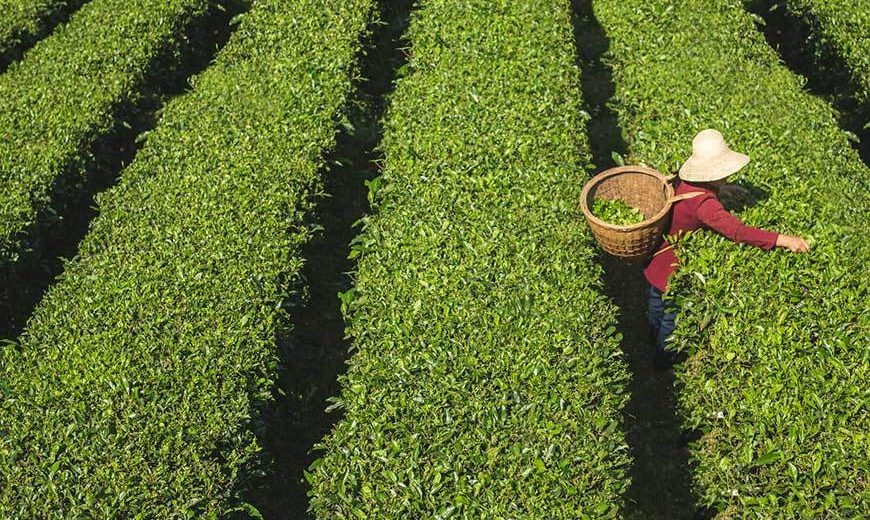17 Aug 2021
Time for a stronger Fairtrade Standard for Tea
The revised Fairtrade Tea Standard seeks to balance the realities of a challenging global tea market with stronger requirements to protect the rights and working conditions of workers.

Image © Philipp Benedikt
Tea is one of the most popular drinks in the world, and, for many people tea, is an everyday staple. The names suggest tea’s origins and background – Oolong, Rooibos, Darjeeling, Ceylon – but many tea drinkers know little about how it is grown, or by whom.
Most of the world’s tea is grown on large-scale farms known as estates or plantations: India, Sri Lanka and Kenya are the leading tea-producing countries. In these countries, almost 320,000 tea farmers are members of Fairtrade certified cooperatives and more than 59,000 people work on Fairtrade certified tea estates.
Unfortunately, because of the colonial origins of tea production in India and Sri Lanka, today’s estates still retain aspects of this legacy, despite modern laws improving some areas of work, such as allowing trade unions. Most tea workers live on the estate in employer-provided housing, and are the descendants of multiple generations who have worked on the same land.
Challenges on tea estates include housing, sanitation, workers not being aware of their rights and having little say, and low wages. For example, women represent a significant percentage of the tea workforce in India, yet they face barriers to participating in trade union meetings or advocating for their rights.
Following an extensive consultation process with producers, tea workers, traders, companies, and researchers, we have updated the Fairtrade Standard for Tea to address pressing priorities for workers.
Robust workers’ rights: an emphasis on women and young people
The standard requires organizations to have a gender policy and prohibitions against forced labour and gender-based violence, and must implement relevant monitoring and remediation systems.
In addition, the standard requires companies to ensure certain types of and conditions for work, when it comes to legal youth employment.
Decent working environments: an absolute must for all
The Fairtrade Standard for Tea now includes stronger specifications when it comes to housing standards, and sanitation and washing facilities, with new requirements to ensure a regular assessment of housing and labour conditions.
A stronger voice for workers: having a say on Fairtrade certification
A Fairtrade Compliance Committee should now be established on plantations, with the aim of giving workers a greater voice in the certification process and in dialogue with management regarding compliance with the Fairtrade Standards.
Fair pay: Increased transparency on Premium
For small-scale producer organizations, increased transparency requirements were added to ensure that certified producer organizations are retroactively paid the Fairtrade Premium, as appropriate, if traders purchase tea on conventional terms, but later are able to sell it forward on Fairtrade terms.
Further work will be needed on wages
Even with the strengthened requirements, we must stress there is more work to be done in closing the gap to a living wage for tea workers in many origins, and especially in Assam. Specific local realities, and the fact that Fairtrade tea is only a very small portion of most tea estates’ business, contribute to the challenge.
Recognizing the need for change across the whole tea sector, we are keen to advocate with commercial partners, government, and civil society to ensure every actor in the tea sector plays their part in achieving a sustainable tea sector that respects workers’ rights and enables a decent livelihood.